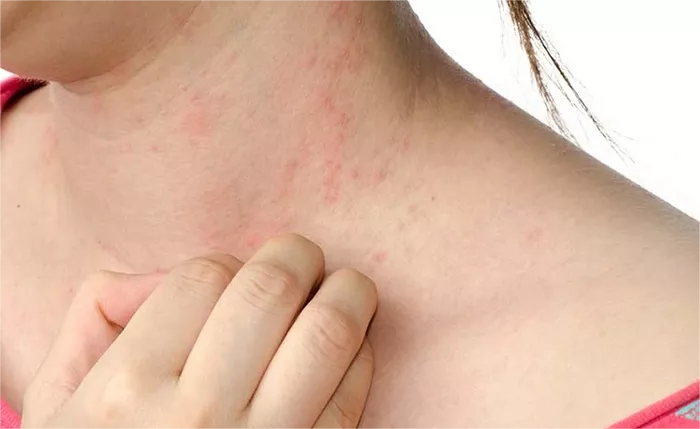Medications play a pivotal role in modern healthcare, aiding in the management and treatment of various medical conditions. However, like any other therapeutic intervention, they can also come with adverse effects. Among these adverse reactions, hives, also known as urticaria, can occur, presenting as raised, red, and itchy welts on the skin. While hives can stem from various causes, including allergic reactions, infections, and underlying medical conditions, certain medications have been identified as potential triggers. Understanding these medications is crucial for both healthcare professionals and patients to ensure safe and effective treatment. In this article, we delve into the intricacies of medications that can give rise to hives, exploring their mechanisms, risk factors, and management strategies.
Before delving into the medications associated with hives, it is essential to grasp the fundamentals of this dermatological condition. Hives manifest as swollen, pale red bumps or plaques on the skin, often accompanied by itching, burning, or stinging sensations. These lesions can vary in size and shape and may appear suddenly before resolving within a few hours or days. In some cases, hives can be chronic, persisting for weeks or even months.
Mechanisms of Drug-Induced Hives:
The development of hives in response to medication can occur through various mechanisms, including allergic reactions, non-allergic hypersensitivity reactions, and direct pharmacological effects. Allergic reactions involve the activation of the immune system, specifically the release of histamine and other inflammatory mediators in response to a perceived threat. In contrast, non-allergic hypersensitivity reactions result from the direct stimulation of mast cells and basophils by certain drugs, leading to the release of histamine independent of the immune system. Additionally, some medications can directly cause vasodilation or alter blood vessel permeability, contributing to the formation of hives.
Common Culprits:
Several classes of medications have been implicated in the development of hives. These include:
1. Antibiotics: Antibiotics, particularly penicillins and cephalosporins, are notorious for causing allergic reactions, including hives. Other antibiotics such as sulfa drugs and tetracyclines have also been associated with hives in susceptible individuals.
2. Non-Steroidal Anti-Inflammatory Drugs (NSAIDs): NSAIDs like aspirin, ibuprofen, and naproxen can induce hives through both allergic and non-allergic mechanisms. Cross-reactivity between different NSAIDs can also occur, exacerbating the risk of hives in individuals with known sensitivity.
3. ACE Inhibitors: Angiotensin-converting enzyme (ACE) inhibitors, commonly prescribed for hypertension and heart failure, have been reported to cause hives in some patients. The mechanism is thought to involve the accumulation of bradykinin, a potent vasodilator, due to inhibition of its degradation.
4. Opioids: Opioid medications, including morphine, codeine, and oxycodone, have been linked to the development of hives in certain individuals. The exact mechanism is not fully understood but may involve both allergic and non-allergic pathways.
5. Radiocontrast Agents: Used in diagnostic imaging procedures such as computed tomography (CT) scans and angiography, radiocontrast agents can elicit allergic reactions, including hives, in susceptible individuals. Pre-existing allergies and previous reactions to contrast agents increase the risk of developing hives.
SEE ALSO: What Are the Signs of Random Hives
Identifying Risk Factors:
While anyone can potentially develop hives in response to medications, certain factors increase the likelihood of experiencing this adverse reaction. These risk factors include:
1. Previous Allergic Reactions: Individuals with a history of drug allergies, particularly hives or anaphylaxis, are at heightened risk of developing similar reactions upon re-exposure to the offending medication.
2. Atopy: Atopic individuals, including those with a personal or family history of allergic conditions such as asthma, allergic rhinitis, and eczema, may have a predisposition to develop hives in response to medications.
3. Polypharmacy: The use of multiple medications concurrently, especially those with known potential to cause hives, increases the risk of adverse drug reactions, including hives.
4. Underlying Medical Conditions: Certain medical conditions, such as autoimmune disorders and chronic urticaria, may predispose individuals to develop hives in response to medications.
Management Strategies:
Managing drug-induced hives involves a multifaceted approach aimed at identifying and avoiding the offending medication, alleviating symptoms, and preventing recurrence. Key strategies include:
1. Discontinuation of Offending Medication: Upon identification of the culprit medication, discontinuation or substitution with an alternative agent is paramount to prevent further allergic reactions and hives.
2. Symptomatic Relief: Antihistamines, both first-generation (e.g., diphenhydramine) and second-generation (e.g., loratadine, cetirizine), are the mainstay of treatment for relieving itching and reducing the severity of hives. Topical corticosteroids may also provide relief for localized symptoms.
3. Medical Evaluation: In cases of severe or recurrent hives, medical evaluation by an allergist or immunologist may be warranted to identify underlying triggers and assess for potential cross-reactivity with other medications or allergens.
4. Patient Education: Educating patients about the importance of medication adherence, avoidance of known triggers, and recognition of early signs of allergic reactions can empower them to actively participate in their healthcare and minimize the risk of future episodes of hives.
Conclusion:
While medications offer invaluable benefits in the management of various medical conditions, they can also pose risks of adverse reactions such as hives. Understanding the medications associated with hives, their mechanisms, risk factors, and management strategies is essential for healthcare professionals to provide safe and effective care to their patients. By implementing vigilant monitoring, patient education, and appropriate management strategies, adverse drug reactions such as hives can be mitigated, ensuring optimal outcomes and enhancing patient safety in clinical practice.
Related Topics:

























